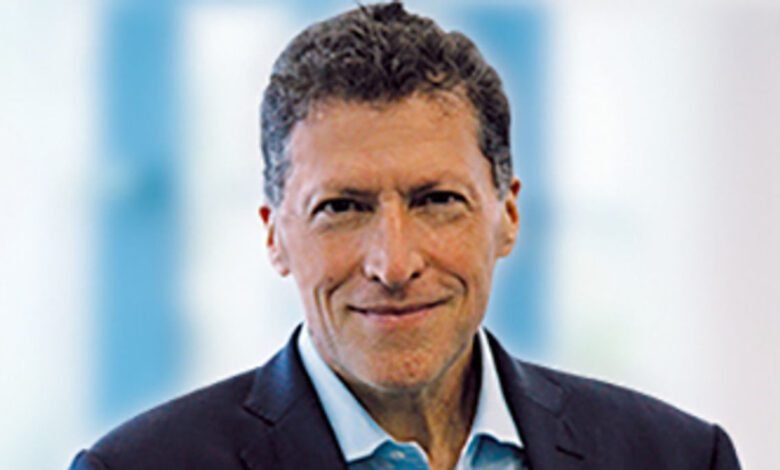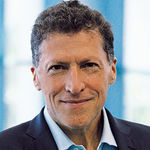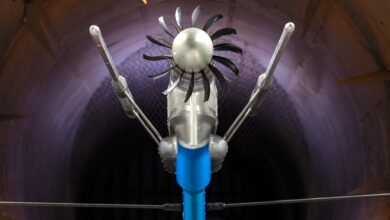I give psychedelic tourism a chance. With a Heisman trophy winner.: Travel Weekly

Adjacent to the state penitentiary in Salem, Oregon, just down the street from the Graveyard Bar, is the Psilocybin Service Center, one of 24 establishments licensed to offer a legal and regulated psychedelic experience in that state.
Travel Weekly first wrote about the intersection of magic mushrooms and the travel industry three years ago, and since then I’ve received a few emails with “psychedelic tourism” in the subject line. One I received in late March had a hook that drew me in: My guide for a psychedelic journey would be former NFL running back Ricky Williams.
Not that I’m a big football fan, but Williams has always struck me as an unusual professional. He is a Heisman Trophy winner whose career has often lived up to expectations on the field, but who has also been repeatedly suspended for failing drug tests that detected cannabis use. He didn’t apologize; he defended what he considered the medicinal benefits of marijuana and wondered why, for example, coaches could hand out Valium and Ambien freely, but the league didn’t allow cannabis, which he felt better alleviated his pain. He retired at age 34 in 2012.
Since then, he has praised not only medical cannabis but also psilocybin mushrooms, which were legalized by referendum in Oregon in 2020. (Although Oregon was the first state to legalize it, and Colorado joined shortly after , its legal use was preceded in several U.S. and Washington municipalities.)
I’m among the legion who tried psychedelics in college, and while the promotions I’ve seen recently talk about tripping on magic mushrooms as a spiritual journey or mental health therapy, I’ve never approached psychedelic consumption from a New Age or self-help perspective. . However, trying them convinced me that our brains can, to use a computer metaphor, host more than one operating system. Consciousness, I came to believe, was much more malleable than I realized, and the insights I had into a psychedelic-induced consciousness seemed to hold up very well after the trip.

Psilocybin Service Center in Salem, Oregon. Photo credit: Arnie Weissmann
The night before my session with Williams, I spoke with Sammy Kahuk, Williams’ close friend and owner of the Psilocybin Service Center. He asked for my birth details – date, time and place where I was born – for Williams to map.
I gave it to him, but I hoped that Williams’ approach to astrology would be more meaningful than what I had seen in newspaper horoscopes.
The center is behind Hall of Strains, a legal cannabis dispensary owned by Kahuk and his wife. (Among its products are those labeled with Williams’ Highsman brand, a play on the trophy Williams won in 1998.) The center itself was larger than I expected and included a room for groups of up to 35 participants.
The walls of the smaller room we would be in were lined with framed op art posters and had a couch, a recliner, and a chair for Kahuk, who was certified to facilitate our session.
Before arriving, I had, per Oregon state requirements, received a Client Bill of Rights and had to initial a consent form 30 times, along with sentences beginning: “I understand that…” Before After putting down my pen, I understood that, among other things, psilocybin was not approved by the FDA, that some people found it challenging or uncomfortable, and that my facilitator might take short bathroom breaks.
Upon arrival, there were 13 more forms to sign, most consenting to various disclosures, but also, for example, asking if I consented in advance to being hugged and possibly to people placing their hands on my hands, feet or shoulders.

Ricky Williams being interviewed by KATU’s Christina Giardinelli before his first psychedelic session at the Psilocybin Service Center. Photo credit: Arnie Weissmann
Williams and I met and each received a sealed portion of a gram of granular mushroom powder that was mixed, Kahuk said, to promote creativity and euphoria. We were supposed to open it, mix it with a single serving of Mott’s applesauce – I wondered why they asked me if I was allergic to applesauce – and consume it. It tasted exactly like unadulterated applesauce.
We sat on the sofa; Kahuk was sitting in a chair on the other side of the room. He was not there to facilitate conversation, but to be available to observe and act as a sober assistant if we needed anything.
I started by asking Williams about his interest in astrology and what he could have learned from my chart. His explanation was detailed, involving several planets and their influences. It went far beyond a newspaper horoscope. I asked if what he saw, in his own chart, was mainly a reflection of what he already knew about himself. He said no. “Astrology doesn’t tell you who you are. It just puts the pieces on the board.”
By the end of this discussion, I stopped being a cynic and began to fully respect Williams’ point of view. His use of astrology was integrated into a broader worldview, which we would delve deeper into throughout the session.
About 20 minutes later, I started having trouble focusing on the conversation. The hallucinations appeared and everything was in motion: the walls, the carpet, the ceiling and, most importantly, a blank blackboard that had acquired three dimensions.
As interesting as all this may sound, I was also very nauseous. Overwhelmingly so. I had skipped lunch, which I began to suspect was a mistake.
Kahuk asked if I wanted to move to the recliner, which I did, but leaning back didn’t help. He asked if the lights in the drop ceiling were too bright. Williams and I answered yes together. He turned them off. But I found total darkness worse. He brought a small machine that sent moving stars and galaxies onto the ceiling. Did not help.
Why was I doing this? I wondered. The day before, I was in Seattle, being interviewed for a Netflix documentary about the implosion of the Titan submersible last year (I was scheduled to dive the submarine a month before the tragedy). Since the implosion, I’ve been wondering if I should be so quick to say yes to fringe activities.
This is so unpleasant, I thought. I looked at Williams and he was sitting cross-legged on the couch, like a Buddha.
But then I started to feel better. I went back to the couch. Williams, who didn’t say a word while I felt nauseous, said that he also felt nauseous and that the first thing that happens when the mushrooms, which he called medicine, take effect is that he feels his old football injuries start to hurt.
Over the next hour and 20 minutes, Williams and I had a long and wonderful discussion about…everything. The universe. Life. Religion. To work. Team work. Relationships.
Williams is very calm and thoughtful and has a cohesive view of all these things. We didn’t always see things the same way, but many of his observations rang not only true, but profound. While he said his personal goal with these sessions is always to get to know himself better, he’s also a great guide.
And psilocybin, I concluded, is a relationship accelerator. We come together.
Ours was the first session the center offered and was, in some ways, the equivalent of a test cruise for a new ship. We then gave feedback to Kahuk. Williams and I agreed that the op art posters didn’t do anything for us—they could be moved into the hallway—but the mesmerizing black-and-white frame should definitely stay. The lighting, we agreed, needed to be muted.
Williams will be at the Psilocybin Service Center one weekend a month as a guide for group sessions and will come more frequently if demand increases. Although the experience was presented to me as “psychedelic tourism”, for now the sessions are offered as a standalone experience. Williams and Kahuk are interested in packaging it with additional experiences to make it a true tourism product.
The cost to join a group is $150. Private sessions range from $800 to $2,500, determined by dosage and duration (sessions can last from one to six hours). Travel consultants will receive 10% commission on bookings.
Would I do it again? I could. The nausea was unpleasant, but the seasickness never stopped me from getting back on board. In both cases, the reward is worth the cost.





